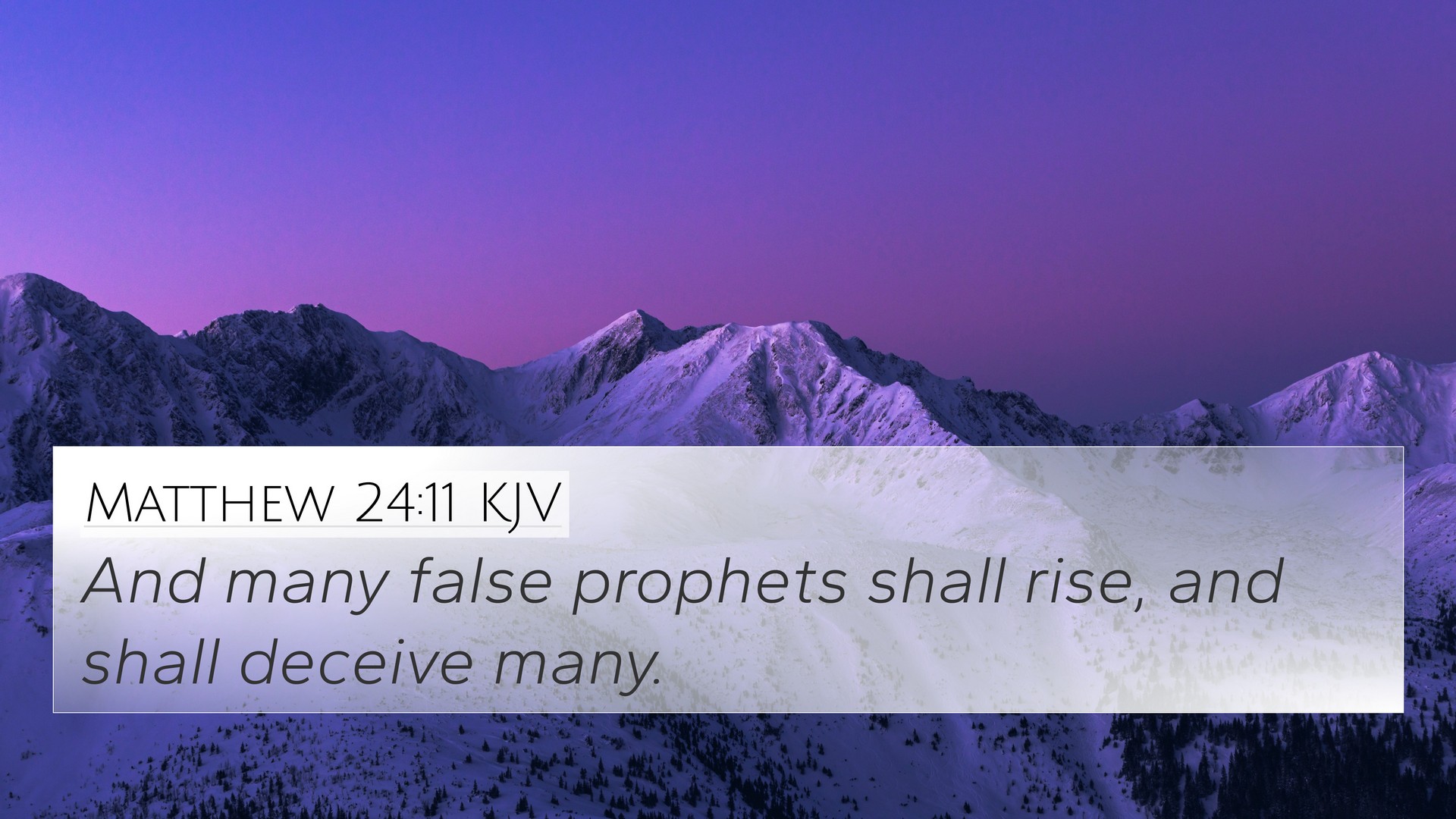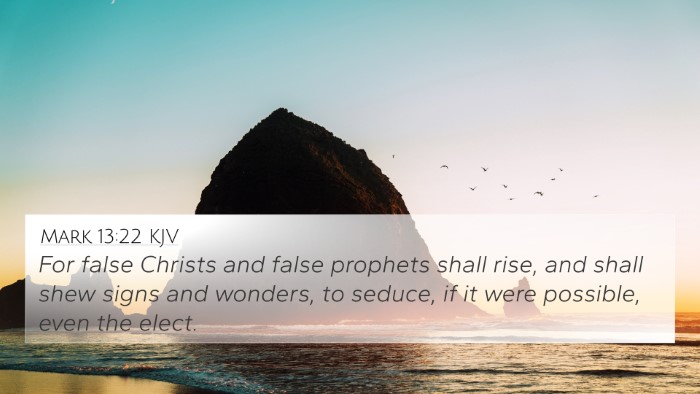Understanding Matthew 24:11
Verse: "And many false prophets shall rise, and shall deceive many." (Matthew 24:11)
This verse comes from a broader discourse often called the Olivet Discourse, where Jesus outlines signs of the end times. Here, He warns of the rise of false prophets who will lead many astray.
Summary of Meaning
The essence of Matthew 24:11 alerts believers to the reality that false prophets will appear in increasing numbers as the end approaches. This serves as a sobering reminder of the necessity for discernment within the Christian faith.
Commentary Insights
According to Matthew Henry, this passage highlights the calamities that precede Christ's return. False prophets represent a significant threat as they distort the truth and lead the faithful away from genuine teaching. Henry points out that these deceivers will exploit the vulnerability of believers, making it crucial for individuals to stay informed and grounded in scriptural truths.
Albert Barnes emphasizes the social implications of false prophecy. He argues that deception will not only impact individuals but could affect entire communities of faith. Barnes notes that the prevalence of false teachings indicates a troubling trend and warns believers to remain vigilant and adhere to the truth of God's word.
Adam Clarke comments on the term "deceive many," clarifying that the divisive power of false prophets can spread rapidly, capturing the hearts and minds of the naive. His analysis reflects the danger posed to collective faith and encourages a proactive approach to verifying teachings through the scriptures.
Cross-References to Matthew 24:11
- Deuteronomy 13:1-3: Warnings against false prophets who perform signs and wonders.
- 2 Peter 2:1: Peter forewarns about false teachers among believers.
- 1 John 4:1: Encouragement to test the spirits to discern their origins.
- Matthew 7:15: Instruction to beware of false prophets in sheep's clothing.
- Mark 13:22: Jesus warns of false Christs and prophets performing signs.
- Acts 20:29-30: Paul predicts that some will arise from among the church to lead astray.
- Titus 1:10-11: The necessity of silencing insubordinate and deceitful people.
Thematic Connections
This verse connects profoundly with the themes of discernment and truth in faith. It invites reflection on how believers actively engage with the scriptures to identify truth and error.
Cross-Referencing Bible Study
Utilizing tools such as a Bible concordance or Bible cross-reference guide is essential in undertaking a cross-reference Bible study. These resources enable the identification of connections between Bible verses, enriching one’s understanding of scriptural themes.
Application and Reflection
When considering the implications of Matthew 24:11, believers should reflect on:
- How can I identify false teachings in my community?
- What steps can I take to deepen my knowledge of scripture?
- How can I encourage discernment among my peers?
Bible Verse Parallels
In examining connections between Bible verses, Matthew 24:11 parallels with several significant teachings. Both the Old and New Testaments provide warnings about the nature and impact of false teaching:
- False prophets in Jeremiah 14:14, where God condemns the prophets who speak lies.
- Proverbs 14:15 encourages discernment in who to trust.
- John 10:10 contrasts the work of the thief with the life Christ offers, highlighting the danger of deception.
Conclusion
Matthew 24:11 serves as a critical reminder to remain vigilant and discerning in our faith journey. By employing cross-referencing Biblical texts and reflecting on the insights of trusted commentaries, believers can fortify their understanding against the inevitable challenges that arise from false teachings.














